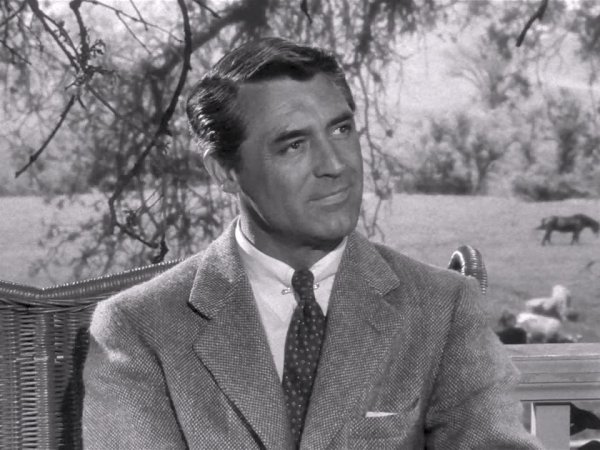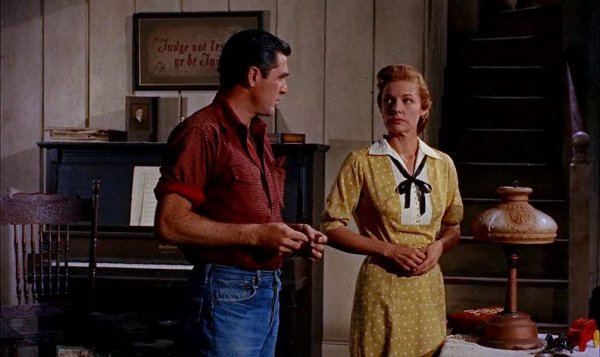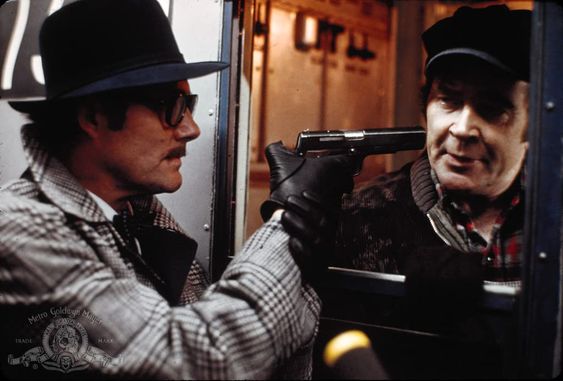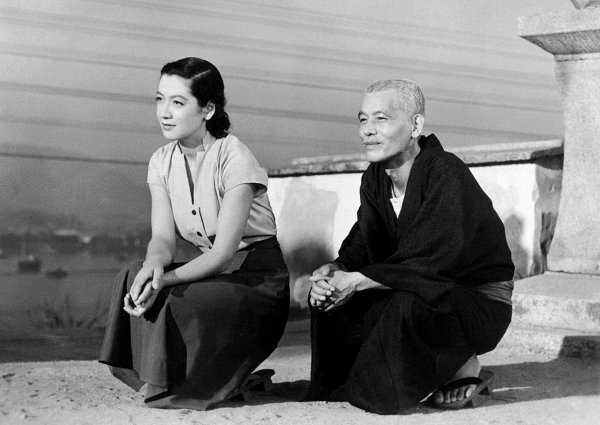- Messages
- 17,484
- Location
- New York City

People Will Talk from 1951 with Cary Grant, Jeanne Crain, Finlay Currie, Hume Cronyn, Walter Slezak and Sidney Blackmer
Whimsy and mysticism are hard to pull off in a movie because, pushed too far, they become sentimentality or nonsense. People Will Talk pulls whimsey and mysticism off, despite a few stumbles, owing to the incredible appeal of its actors.
The most appealing of those actors is, no surprise, lead Cary Grant. Grant can absolutely act, but his movies are really more about the joy that is being Cary Grant on screen. Here, as a kind doctor with a holistic view of treating the patient, Grant has never been more joyous.
He's the medical-school professor whose classes students fight to get into just as the sick covet a spot in his avant-garde medical clinic, which treats "people not illness."
Grant also conducts the school's orchestra with verve and merry even when he's playfully admonishing the musical skills of his best friend and double bass player Walter Slezak. Their wonderful relationship is one of spirited persiflage on the surface with a deep respect and admiration underneath.
At the same time Grant's inspiring students, conducting music and healing the sick, his nemesis, perfectly played by his bitter and jealous colleague Hume Cronyn, is leading a witch hunt against Grant (echoing the era's anti-communist witch hunts).
While Grant is Granting his way through life with a mysterious friend and assistant, Finlay Currie, at his side, Cronyn is hiring private investigators to find any dirt he can on these two.
Grant is too busy teaching, doctoring and pursuing a love interest - a clinic patient, Jeanne Crain, who is pregnant and not married - to worry about Cronyn. In his pursuit of near-suicidal Crain (being pregnant out of wedlock was a big deal back then), Grant visits her family farm owned by her morally hidebound father.
There, he also meets her wonderful uncle, Sidney Blackmer, a man who openly admits he's failed at life, but has such a friendly nature, that Grant and Crain ask him to live with them after they marry.
The juxtaposition of Crain's successful-but-stubborn father and her failed-but-kindly uncle is really the movie's theme in a nutshell: people fall into two categories, the narrow-minded, selfish and judgmental (Crain's father and Cronyn) and the free-spirited, accepting and compassionate (Grant, Slezak and Blackmer). It's an unfair and overly simplistic view of people in real life, but a fun indulgence in the movie.
Now married, Grant and Crain have an inviting home where friends like double-bass-player Slezak drop by, play with the greatest model train set-up ever and just enjoy each other's company.
But irritant Cronyn - you know the type, he's the guy worrying (riffing on H. L. Mencken) somewhere, someone might be enjoying himself - brings Grant up on charges before the school's administration oversight board.
The movie gets both muddled and less believable at this climatic meeting. There it's revealed Grant and his odd sidekick Currie have checkered pasts whose incomplete and vague explanations the oversight board too easily accepts. (Minor spoiler alert) Grant is fully exonerated while weaselly Cronyn gets put in his place; it's that kind of movie.
People Will Talk's charm is a little too easy and a little too much, but it's so infectious, you look past its hokeyness and just enjoy the camaraderie and spirit of Grant's world. You know that world doesn't really exist, but for about two hours, Cary Grant makes you believe it just might.





